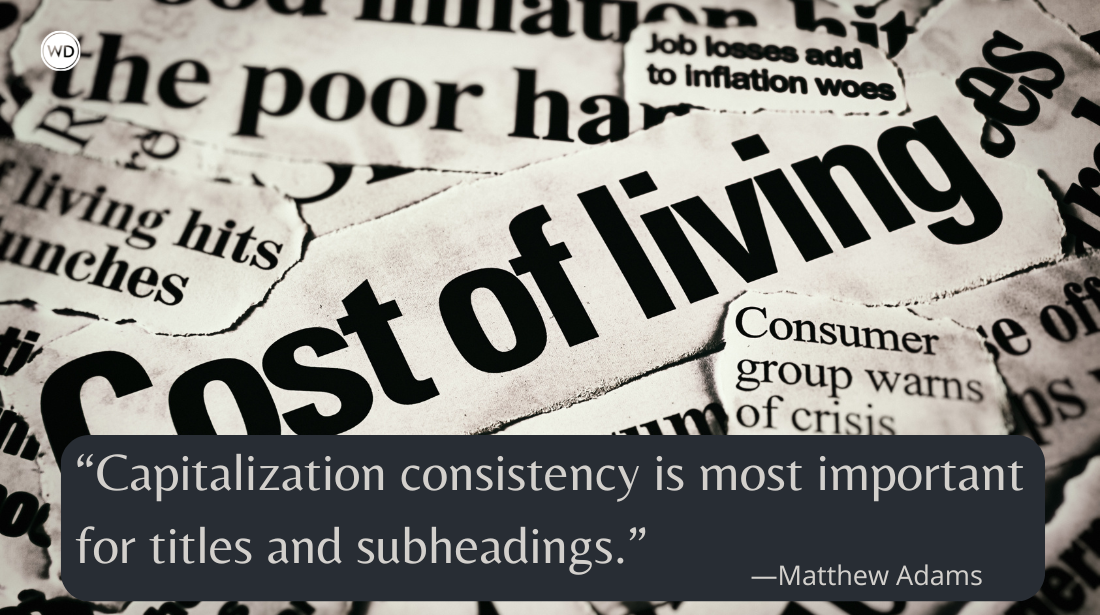Write Like Rick Steves: Travel Writer Extraordinaire
Wanderlust, business savvy and a “magical, all-alone private Stonehenge”: How Rick Steves became the world’s most trusted travel writer. by Zachary Petit
You turn on the TV and there he is, all khakis and comfy collared shirt, biking around a Dutch city-scape as he lives out one of the ultimate authorial dreams: Travel writing. You lean in, staring intently, and maybe salivate the slightest bit at the realization: This man gets paid money—yes, real money—to travel. And then write about it for his TV and radio shows and his familiar blue guidebooks, to name just a few of his gigs.
Rick Steves, how’d you get everyone’s dream job?
After years of watching and reading his work, though, I find myself interviewing a different Rick Steves. It throws you off: This Rick Steves is still cordial and prone to delightful turns of his trademark flowery prose, but he sounds tired. This Rick Steves says he needs a little coffee to recharge. Rather than the traveler we know, he sounds a bit like his more serious elder, with a definite hint of business overtones. But that’s OK. There are reasons Steves can go anywhere he wants in the world and be a local, and there are reasons he’s successful at doing it. But more on that later.
Before forging his multi-million-dollar enterprise, there was the teen Steves, an Edmonds, Wash., vagabond who would venture to Europe and channel an innate compulsion to journal about it. As he describes what made him want to take the leap from traveler to professional travel writer, the guy on TV eases into the conversation for the first time, enchanted voice and all. He was in England, and he’d seen Stonehenge and all the tourist trappings that accompany it—“bull horns, barbed wire, porta-potties.” While venturing into a quiet moor, Steves stumbled upon the inspiration that would launch a travel writing empire.
“I found my own magical, all-alone private Stonehenge—just me and these long-haired sheep or goats and the winds,” he says. “I remember thinking right there, wow, this is what I’m going to do: I’m going to find places like this and bring them home. That was a real revelation for me, as I was in my college years and realized I could collect these things together and I’d have something of value to offer people.”
And that’s what he’s done. Today, Steves, 54, boasts a staff of 70 people at his travel center and headquarters in Edmonds. He’s a syndicated columnist for Tribune Media Services. He has his own TV production company, and he writes and produces the popular “Rick Steves’ Europe” program. He hosts a weekly public radio show. He writes or co-writes some 30 guidebooks. According to his publisher, Avalon Travel, his Europe guides make up the top-selling series on the region, and Rick Steves’ Italy is the bestselling international travel guide, period. In 2008 alone, some 730,000 of his books were sold.
But the question remains: How? Well, for starters, he’s passionate. Even though he sounds a bit tired and as if he’s in a business mindset today, his enthusiasm tends to bubble to the top and over the rim every so often. “I’m doing the same thing I did as a college kid but I’m just amplifying much more,” he says. “The amplification turns me on.” It’s this passion, too, that Steves sees as the key to understanding if the travel market is a good fit for an aspiring writer.
“You have to be a traveler first. You can’t be a writer and then think, what can I do to find my niche? It has to be towered by a passion for travel. I still sit on the floor and munch crackers and cheese I put in a Ziploc baggie from last night. I love to kind of blow with the wind and be very simple and in the elements, and I like to be out of my comfort zone. I like to take notes, I love teaching what I like and I’m surprised I’ve never gotten tired of traveling.”
THROUGH THE BACK DOOR
The funny thing about Steves is that he never planned on doing any of this. At an early age, his future seemed cast in a different sort of poetry: music. Steves took his first trip to Europe with his father, a piano importer, in 1969. Their mission? To visit piano factories. After chronicling his experiences on the backs of hundreds of postcards, Steves returned home and would go on to teach piano lessons in the next decade, using his earnings to jet back and forth across the ocean. He started teaching travel classes and founded his one-man Europe Through the Back Door company in the mid-1970s to latch onto a need—for someone to travel to places most people dream of going, garner experiences and trip-ruining mistakes, and then share them.
Eventually, he realized his “European Travel Cheap” classes needed a textbook. Embarking on a guerilla do-it-yourself project, Steves wrote his first book—what would become the classic cornerstone of his library—Europe Through the Back Door. He rented a typewriter, convinced his girlfriend to type the manuscript, whisked the book off to a self-publisher and picked up a load of 2,500 tomes on his 25th birthday.
“People think you’re an expert when you write a book; it gives you some authority, whether you deserve it or not,” he says. “I took advantage of that. I became more of an expert after writing the book—not before writing the book—and then the credibility the book got me was worthwhile. You just find something you’re passionate about and share it creatively and enthusiastically, and if it’s viable, it’s going to succeed.”
Soon, Steves traded in the piano bench for a life on the go. The book found its way to John Muir Publications, and Steves produced more—Europe 101 and museum guide Mona Winks, both co-authored with friend Gene Openshaw. Numerous books followed through the coming decades, covering cities, foreign phrases (interestingly, Steves is fluent only in English) and other subjects, all wrapped up in the author’s unique platform: the curious everyman, traveling on a budget, and doing it in a way that gets his readers off the beaten path so they can witness the real face of a locale.
In other words, Steves made a name for himself by pulling the superficial veil of tourism back. (Or, as he puts it: “There’s a hunger from certain American travelers not to meet the lady in the dirndl on the stage who pulls mustard out of her cleavage just for photo ops, but to meet real people who are not in the tourist industry.”) As time passed and he expanded the reach of his message, Avalon Travel eventually bought John Muir, and Steves began developing TV shows in the 1990s—taking a chance on offering them to stations for free.
Free—as a rule of thumb—seems to be a key tactic over the course of his career, whether handing out radio programs, newspaper columns or lectures to bolster his overall reach. For new writers looking to break in, Steves says it can be a great plan, and it worked for him; problem is, it’s a rare feat to make money at travel writing unless you’re a paid staffer somewhere. But when confronted with giving his message away for free or not at all, Steves finds it to be an obvious choice.
“I’m lucky I’ve got a quirky business design where we do make plenty of money from royalties and from taking people on tours and retailing stuff,” he says. “But information is our publicity stunt. I feel sorry for somebody who has to compete with me who doesn’t have the financial opportunity to make money accidentally through his writing.”
At the moment, Steves is trying to flesh out his next itinerary for the 120 days he spends in Europe every year researching, fact-checking and gathering material for future shows and books. He says he’s struggling. Like any writer, he has to evaluate ideas in terms of his audience—for instance, he wants to visit Lithuania and Latvia, but they’re not exactly the hottest destinations for mainstream travelers. “I’ve got to always think how many people are going to get value out of this, and the only way it’s viable is if a whole pile of people get value out of it,” he explains.
Suddenly, this more serious version of Rick Steves starts to come into focus. Sure, he’s a beatnik and a free spirit, but he knows he’s got a brand, and he does what he has to do. If passion is part of the key to his success, the fact that he’s able to channel a business mindset seems to be another vital component. This is Rick Steves the entrepreneur, who offers a small laugh when he admits he got a business degree in college alongside his European history one because he was afraid—how was he going to make a living when he got out?
That’s obviously not an issue now, but it’s not the only priority, either. “I measure success not in dollars earned, but how many trips I impact in a positive way,” he says. “I’d do anything to impact people in a positive way, to inspire people to travel more thoughtfully.”
Perhaps that’s the key to all this juxtaposing passion and business, one we should all remember as we write and market our words in any genre: Steves has found a way to balance the delicate marriage between the two.
MR. EUROPE
No matter where he’s reporting from or what medium he’s doing it for, Steves’ writing is a critical cog in one giant, $40 million wheel. It’s not always the in-your-face driving force, but it’s undoubtedly a key backbone, his zen-like prose moving scripts along and getting readers from London to Bruges with ease. He attributes the secrets of his style to the fact that he’s always giving lectures and refining his words in real time. “I can read my audience. It helps me be a more confident writer.”
Steves is constantly reminding his fellow travelers no one can plan for everything, and encouraging them to take things in stride. You get the feeling he approaches his writing as it comes, as well. His style is conversational and laid back—he gives you the facts but isn’t afraid to mention his favorite place to get gelato, either. “I think a lot of travel editors comb a lot of the personality out of the writing,” he says. “Your personality can be distracting, but on the other hand, you should be the friend of your readers, and they should know your style.”
Thus, fans know him as the guy who loves restaurants, strays from masses of souvenir shops and, as a former tour guide, knows “how many Madonnas and children the average American can endure.” Eventually, for readers, what starts as an interest in the subject matter becomes a fondness for the source. There are few other explanations for why his audience would watch a show about Iran, one of his latest specials, when, in all likelihood, most probably won’t ever go there.
So when you have as many books as he does—ones that come with years printed on the covers—how do you keep them all updated? Concentrated, intense effort. In Europe, Steves follows a rigorous schedule covering hotels, restaurants, sights and walks; he investigates reader feedback; he celebrates when he gets ripped off because he can share it with his readers. After arriving back at his hotel each day, he spends around three hours at his laptop working on notes.
“Being a writer is glamorous,” he says. “Being a guidebook researcher is just physical, hard work. I really like the creative writing, but when I’m over there, the hard and the productive and the practical work is my research.”
If he were Mr. Ireland, Steves says he’d do it all himself; instead, he’s trying to be Mr. Europe. So he relies on co-authors—a practice that’s not without its share of stigma in the writing world. He still juggles his favorite destinations single-handedly, but if he happens to have a trusted comrade who’s passionate about a locale he just doesn’t have time for every year, he’ll collaborate on a guide. To keep them all genuine Rick Steves books, he sets the tone and “contributes mightily” to the first edition. Consider Pat O’Connor, his co-author on the Ireland guide; Steves says that in addition to having the perfect name, his collaborator traveled with him for 10 years, and knows just how Steves would do the research.
“It’s my credibility,” he says. “I love finding new places that will make people really love Rick Steves when they get there. Tonight, there’s 20 people in a great little chalet high in the Alps, probably drinking to me. It sounds kind of stuck up, but it’s so fun to be able to find these places that really inject magic into somebody’s trip.”
The fodder Steves has discovered audiences most enjoy? A good meal. Places with character. Places only locals go. Opinion. Empathy. Insight into cultural odds and ends you’d otherwise breeze right by, something the author considers one of his travel writing specialties.
“When I’m here, sitting at my desk, I write and it has to have a practical value to our customers,” he says. “Apart from that, when I’m Rick, just Rick, the guy who likes sushi and The Beatles, I write just for the joy of self-expression. I like to try to be a keen observer, and writing helps you sort through ideas and make sense of them.”
As for the guy who likes sushi and The Beatles, you’d never know he’s a European traveler by visiting his house in Washington. Steves says it lacks the trappings of Cuckoo clocks and other souvenir staples, and adds that when he’s at home, he doesn’t like to be reminded of his job. “Be careful about marrying a travel writer, because the travel writer, when he gets home from work, doesn’t really want to go out to restaurants and museums. He wants to kind of sit in the hot tub and look at the trees.”
In his personal writing life, he considers himself “a frustrated poet,” and loves crafting poems for his own enjoyment—not publication. However, his writing is not without its share of evolutions; he recently released the 10th anniversary edition of Postcards From Europe, his anecdotal prose “guidebook in disguise,” and his Travel as a Political Act, a book detailing how venturing abroad can broaden your perspectives, was released in May.
As Steves delves deeper into a conversation about creativity and the art of writing, something happens: His business side appears to dissipate entirely for a minute, and here’s the Rick Steves who started all this because of an instinctive compulsion to pick up a journal and a pen.
“I just like writing, you know? I guess I’m a word person or something. It’s a way to communicate. It’s the spirit of third-grade show and tell. I just love that innocent exuberance of kids bringing a little goofy thing they made with Popsicle sticks or whatever, and showing it to their friends. And if I have a thought that I think is fun, I like to share it with my friends. It’s just a natural sort of love of life, I think. I channel that into travel because that’s my work— because I’m a travel writer.”
So how did Rick Steves get everyone’s dream job? There are reasons he can go anywhere he wants in the world and be a local, and there are reasons he’s successful at doing it: passion, sensibility, a platform, standards and consistency. But there’s one more part, one you understand when you talk to him, and maybe that’s all there really is to it in the first place: Maybe he’s just a damn likable and friendly guy—the guy on TV, even if he sounds a little tired now and then—and when it comes down to it, that can go a long, long way in your writing career.
Is there anything you’d like to add, Rick?
“Yeah, just, uh, happy travels,” he says with a small chuckle.
Of course. [WD]
This article appeared in the July/August issue of Writer's Digest. Click here to order your copy in print. If you prefer a digital download of the issue, click here.
Zachary Petit is a freelance journalist and editor, and a lifelong literary and design nerd. He's also a former senior managing editor of Writer’s Digest magazine. Follow him on Twitter @ZacharyPetit.









